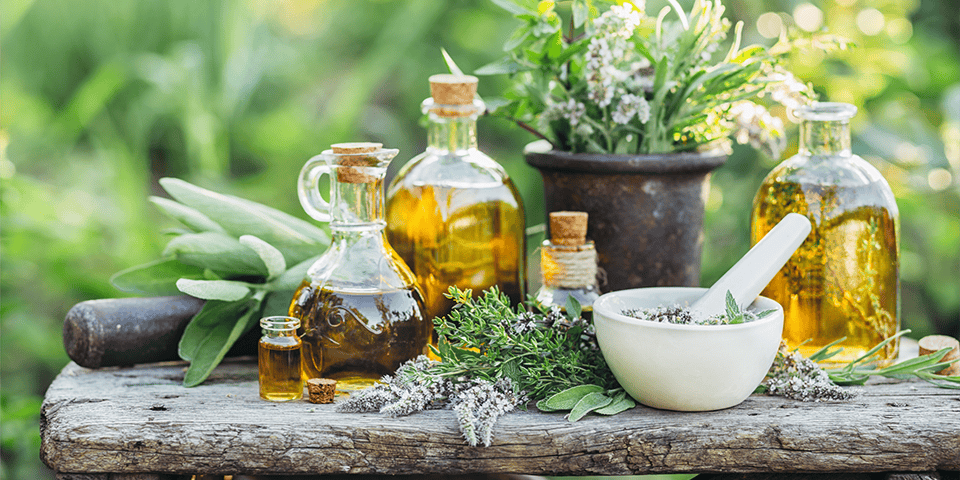Herbs and Mental Health: What Does the Research Say?

As is evident by current research efforts (see Herbs and Mental Health), interest in using herbs to support psychological well-being is increasing. Scientists worldwide are beginning to substantiate the efficacy and healing capacities of hundreds of plants, trees, and their constituents — many of which have already been used in diverse healing traditions for thousands of years.
Scientists worldwide are beginning to substantiate the efficacy and healing capacities of hundreds of plants, trees, and their constituents.
For instance, Ayurvedic herbs like ashwagandha (Withania somnifera) are currently being studied to treat neurocognitive disorders because of their proven ability to reduce inflammation, a prominent cause of degenerative disease.
In a 2018 study, Gupta and Kaur stated that “Natural products are emerging better therapeutic agents due to their affordability and inherent pleiotropic [producing more than one effect] biological activities.”
Another herb well-known for its powerful antioxidant and anti-inflammatory properties is turmeric, alonside the active phytochemical it contains called curcumin. Turmeric is a rhizome (a subterranean plant stem that sends out roots and shoots from its nodes) commonly used in Indian cooking, and one of the world’s most popularly relied-upon nutraceuticals.
Scientists have demonstrated that curcumin can have positive effects on disorders including Parkinson’s disease and Major Depressive Disorder (MDD) (Tizabi et al., 2014). These findings are demonstrated in a study titled Relevance of the Anti-Inflammatory Properties of Curcumin in Neurodegenerative Diseases and Depression. Its authors write that “curcumin, or better yet, an analog with better and longer bioavailability could be of important therapeutic potential in PD and major depression.”
Curcumin can have positive effects on disorders including Parkinson’s disease and Major Depressive Disorder.
It is exciting to see both unfamiliar and familiar herbs like ashwagandha and turmeric being demystified as reliable sources supporting the mitigation of cognitive decline and disfunction. Soon other herbal plant medicines, including brahmi, ginkgo, Gotu kola, and even lemon and mint, may join their ranks as potential treatments with proven positive outcomes.
Fortunately for healthcare practitioners, patients, and curious individuals, we are at a period of renewed understanding in how we use plants to prevent, treat, and heal the range of psychological imbalances we experience, from anxiety and ADHD to stress and Parkinson’s Disease. Find current research on these topics in the Herbs and Mental Health category of CNP’s NP Research Library.
References
Gupta, M., & Kaur, G. (2018). Withania somnifera as a Potential Anxiolytic and Anti-inflammatory Candidate Against Systemic Lipopolysaccharide-Induced Neuroinflammation. Neuromolecular Medicine, 20(3), 343–362. https://doi.org/10.1007/s12017-018-8497-7
Tizabi, Y., Hurley, L. L., Qualls, Z., & Akinfiresoye, L. (2014). Relevance of the anti-inflammatory properties of curcumin in neurodegenerative diseases and depression. Molecules (Basel, Switzerland), 19(12), 20864–20879. https://doi.org/10.3390/molecules191220864








Leave a comment